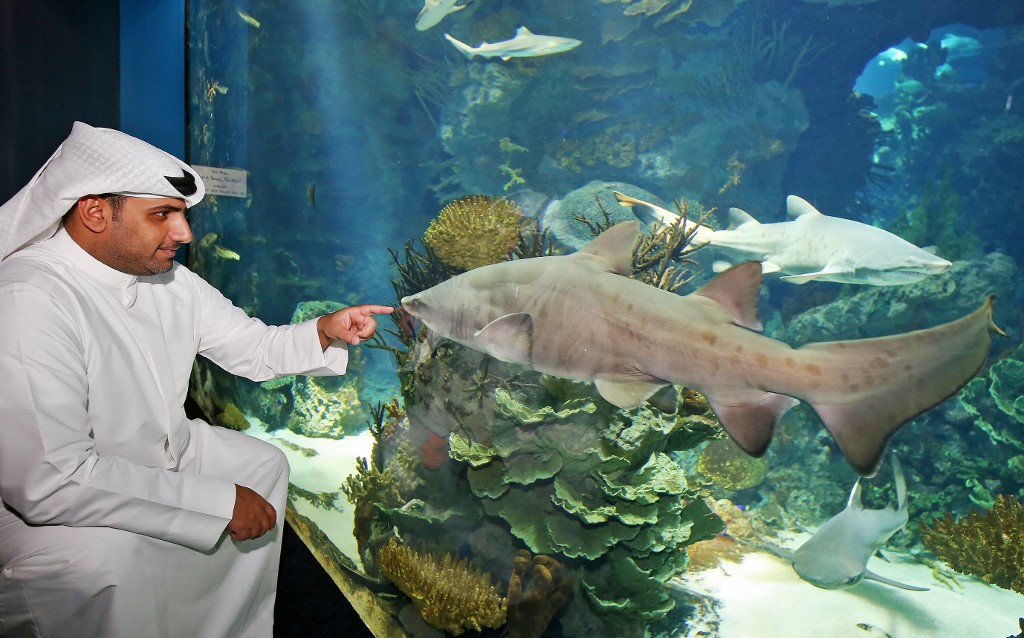KUWAIT CITY, July 5 (Xinhua) -- The Scientific Center of Kuwait (TSCK) announced on Tuesday its success with breeding the critically endangered sand tiger sharks, making it a leader in global efforts to save the species from extinction.

Mohammad al-Sanousi, assistant manager and public relations and sales officer at the Kuwait Scientific Centre, points at the six-month-old sand sharks "Bader" and "Badreyya" as they swim in a fish tank at the facility in Kuwait City on July 5, 2022.
The major scientific achievement, including the successful care of newborn sand tiger sharks, was made as part of a carefully designed strategy to ensure the continued health and wellbeing of the marine species inside an aquarium, said scientists from TSCK at a press conference held in Hawally Governorate.
Salem Al-Ablani, a biologist and former member of the TSCK Board of Directors, said TSCK has provided and maintained a suitable environment for sand tiger sharks for the past 22 years, enabling them to reproduce naturally and continuously without any human interference.
Scientific studies show stressors such as crowding, diet and water temperature in the environment of an aquarium make it difficult for a female sand tiger shark to maintain her pregnancy as long as her full gestation period that ranges from 12 months to 14 months.
Despite all the odds, the TSCK aquarium has ensured the successful birth and survival of two baby sand tiger sharks, according to the Kuwaiti scientists at the press conference.
"The biggest challenge for the Scientific Center was to safeguard the lives of the young sharks after their birth, because the baby sharks need extreme care to be able to survive," said Al-Ablani.
"The survival of this type of shark is considered rare, and very successful models are few and far in between," he added.
The sand tiger shark is one of the species listed on the Britain-headquartered International Union for Conservation of Nature (IUCN) Red List of Threatened Species.


